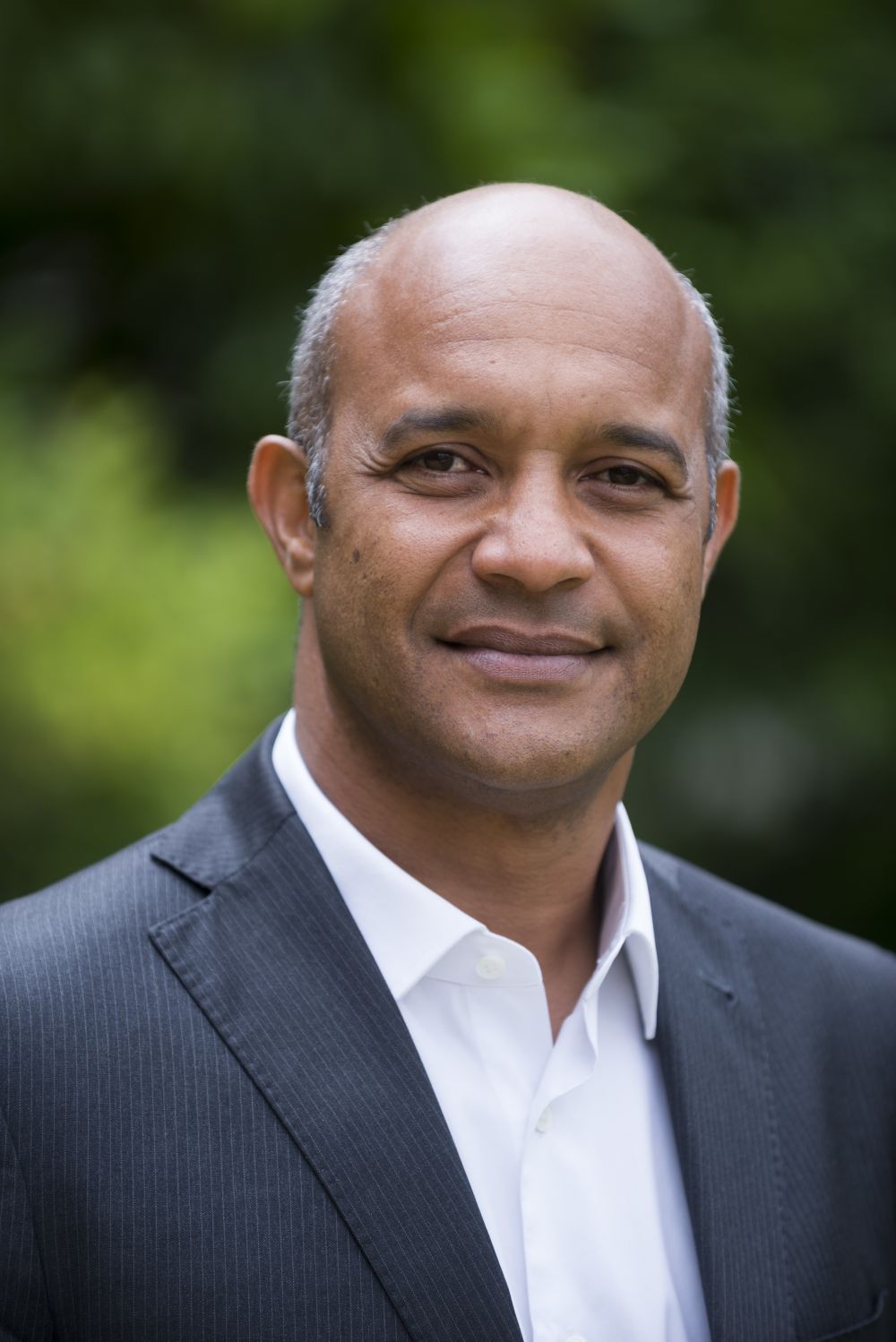Elections COM 2017 : interview with Daniel Gibbs, head of the Team Gibbs 2017
♦ How did you decide to run (again) in the territorial elections?
Presenting a list for the territorial elections is a serious decision that must be carefully considered. More than ever, voters need to understand this political act, and this understanding must come through ever more exemplarity, responsibility, and involvement. I am fortunate to be surrounded by honest and competent women and men who are motivated by the same values: together, we have set up, month after month, a real social project to serve the population of Saint-Martin. Today, we are ready to take the reins of the Collectivité and determined to put Saint-Martin back on the road to development.
♦ We currently talk a lot about the Saint-Martin identity, as many Saint-Martin residents feel they have lost it. As a Saint-Martin resident, do you share this feeling? Do you feel you have lost your identity?
It is undeniable that a part of the Saint-Martin population felt deprived of their island in the years following the tax exemption. For some in Saint-Martin, that feeling leads to nostalgia for the old Saint-Martin, and I can understand that.
Personally, I have no problem with my identity: I have a mother from the mainland, a father from Saint-Martin, my wife is of Slavic origin, my children are mixed-race... I've always considered interculturalism as an opportunity and multiculturalism as a strength, not a threat. Times have changed, society is changing, and I have no trouble defining who belongs to Saint-Martin: it’s the person who decides to settle on the island, get involved, work here, and raise their children here. Those "in the know" might contradict me, but that remains my definition.
♦ For the past several months, there have been some very nationalistic sentiments. While on the mainland such ideas are denounced as a danger to society, here we tend to entertain them. According to you, is this less dangerous locally?
You are making an observation which I absolutely do not share. I do not believe that Saint-Martin has suddenly become a den of dangerous nationalists. I live, I grow, I think Friendly Island. If there is communitarian fallback, it is contextual and stems, as it unfortunately does everywhere else in the world, from the socio-economic crisis that we have been experiencing for years.
♦ We always hear that economic development should be a priority because it will create jobs, wealth, etc. Although the tax policy is attractive, it is rare to find investors interested in coming to Saint-Martin. In light of the unemployment figures, all the actions carried out so far have been a failure. If you are elected in March, what measures will you implement to create jobs? With what goals?
Economic development is our great priority: our aim is to create a virtuous circle, because creating wealth means creating jobs, which creates social progress.
There are many levers: tax policy comes first, because it has become totally illegible for investors and is perceived as deeply unfair by a majority of Saint-Martin residents. However, to create wealth, we need private investors whom we must reassure with fair, simple, and transparent taxation. We will launch this tax reform project starting in the very beginning of our term.
We also must equip ourselves with high-performing, modern tools to be ever more innovative and competitive. This is why we will set up an Economic Development Agency made up of elected officials and socio-professionals, which will be responsible for implementing our economic development plan...
Our businesses must be supported: this is the reason, for example, for the implementation of a Small Business Act specific to Saint-Martin which will guarantee a legal framework to facilitate participation in public procurement.
Alongside the needed diversification of our economy, through support for the traditional sectors of agriculture and fishing, we will also rethink our tourist sector, our top economic sector, and we will develop activities with high added value, such as sustainable development or new technologies...
Here are some examples of what we will promote once elected and which are also solutions to stem the scourge of unemployment in Saint-Martin...
♦ In terms of employment specifically, many people, including you, want to give priority to residents of Saint-Martin. This may seem fair, but we must be realistic and admit that there is a lack of skills locally, especially for senior positions. In your opinion, how can this be remedied? How can we train younger and older employees in the territory during their careers so they can advance?
The finding is painful: 80% of our unemployed citizens have no qualifications. It is therefore necessary to establish a proactive training policy. Yes, we lack structures providing quality training, and this may discourage local hiring. But Saint-Martin’s youth have many assets which we must know how to value. That's why we want to create a center of excellence in tourism and interpreting within our future autonomous training organization. This is also why we will work with the University of the West Indies (Université des Antilles) in order to offer our young people who cannot continue graduate studies abroad the opportunity to access at least up to a Bachelor’s degree in Saint-Martin.
Of course, the training of our young people also takes place through professional courses: we must value these technical studies by reorienting learning to sectors creating jobs locally. I am thinking particularly of the maritime trades. As for the too many young people registered with the local mission, or those who are purely and simply idle when they are not working, I think we can benefit from a 2nd chance school and an RSMA in Saint-Martin, as these devices have proved their worth...
Local businesses must also play the game: we will require those responding to public contracts to hire a certain percentage of these young people. But we must also encourage local hiring: again, we have the tax lever to achieve this. We could, for example, create a tax benefit for businesses recruiting young people from Saint-Martin.
And yes of course, there is a real problem in Saint-Martin where our citizens are underrepresented in management positions: we need to improve access to positions of responsibility in the public sector to Saint-Martin residents and already-employed Collectivité members by, for example, financing training provided in the context of integrated preparatory classes. More generally, we need to train an elite in many areas: health, education, category A public servants, business... The Collectivité has also bet on its future by facilitating the training of its best elements.
♦ As for education, the observation made over the past several years is alarming: the level is very low. For several reasons: problems at the level of the language, lack of involvement of parents in their children's education, etc. According to you, what is the first obstacle to the success of our children? And how can you remove it?
I do not want to speak as an armchair sociologist, but there is a cruel lack of implication by many parents in the education of their children, which can be explained by many social factors. The level of our students is admittedly low in Saint-Martin, but I refuse to see that as a foregone conclusion. Our multilingualism is currently seen as a major handicap, which is completely ludicrous in this time of globalization! We will make that "handicap" a true asset when our tools and structures are better suited: organic law already allows us to act on bilingualism in early education.
To facilitate the learning of French, beginning in kindergarten, the student and his teacher should have the assistance of a "referent" native speaker of English from Saint-Martin who could be recruited from a specific group of teachers, consisting for example of young graduates from the island. Starting in middle school, in my opinion there should be a true generalization of Euro-Caribbean classes... But to act on pedagogical content, on the organization of teaching in our schools and on teacher recruitment, we must locally appoint a Vice-Rector of Saint Martin: it's a need provided by the 74 and enjoyed by all the other overseas Collectivités governed by this status, and I will not compromise on that.
♦ Concerning the development of Marigot Bay, the current majority’s plan seems not to have attracted many investors. Some have already learned from this and want a smaller-scale project. What is your position on this development?
Developing tourism infrastructure in Marigot is one of our top priorities because we want to empower ourselves to redefine and boost our tourism, Saint-Martin’s top business sector, and thus put the French side of the island on a path to development. It is for this purpose that we will create "The Grand Marigot," which will extend from Morne Valois to Bellevue via Galisbay. Our ambitious but necessary approach provides for the renovation of the Port la Royale Marina, the development of the capacity of the Marina Fort-Louis, the construction of a cruise ship dock and a welcoming terminal, the creation of shipyards in Galisbay, the establishment of hotels and accommodations in the city center, and even the creation of a business center in Morne Valois. The development of Marigot Bay is crucial to our economy, it is a key factor for our development.
♦ In tax matters, it is difficult for the Collectivité to collect all taxes. It is also difficult for taxpayers to pay taxes, so for years, they did not. Unpaid taxes totaled more than €20 million last year to the Collectivité. In your opinion, how can the system be more effective? Should we remove taxes? Lower the rate of certain taxes to motivate people to pay?
Taxation is the crux of the matter: we need revenue for the full functioning of the Collectivité and for the investments we need to put us back on the road to economic development and thus, once again, to social progress. We don’t want a subsidized economy, totally dependent on State/Europe funding and sucked dry by regular operations.
Taxation has become totally counterproductive: our general tax code the size of a phone book, it puts off investors and nourishes a totally justified sense of fiscal injustice among entrepreneurs and individuals. We need to reverse the situation: after a few months of audits and consultation, we will develop a total reform of our tax system, for both businesses and individuals, to make it both simpler, fairer and more transparent.
Without prejudging the results of this reform, we are nevertheless convinced that we need a simplified tax which rewards work by removing the tax on salaries, for example, or which promotes the transmission and conservation of Saint-Martin’s heritage by extending exemptions from inheritance tax... Taxation should also be made fairer by broadening the tax base, because it is unacceptable that companies or individuals can still evade taxes. It is unbearable to shift the burden of the failings of bad taxpayers to the most vulnerable, and for this reason, we will remove the fine of €100 for the issuance of the tax exemption notification... Finally, taxation should be more transparent: a well-understood tax system relies on tax that will go into the coffers of the Collectivité. We talk about public money: the taxpayer must understand the use of taxes in Saint-Martin.
♦ For several years, ecology and more broadly the environment have been more and more important in both national and international political discourse. There was the Grenelle Environment Forum, and then recently the COP 21 and 22. Here in Saint-Martin, this topic is missing from debates. Don’t you think, however, that the environment should be the common denominator of all considered and proposed actions?
Saint-Martin has no doubt a lot of delay on these subjects. For a long time, our leaders have opposed economic development and environmental defense and preservation. However, the two go hand in hand, because the equation is simple: we live from tourism, and if our beaches are polluted and our lifestyle repulsive, our visitors will choose more environmentally responsible areas.
Several actions can be implemented to bring Saint-Martin into a more environmentally friendly virtuous circle. I think of the incentive for developers to construct sustainable, exemplary buildings, for example; I also think about a less CO2-intensive traffic pattern or the study of clean energy sites... Not only are these issues crucial, but they participate in the economic development of Saint-Martin, because the environment is very clearly a future stream for creating local employment.
♦ Everyone agrees to a cleanup of the island. Here, garbage is picked up every day, which is not the case elsewhere, even overseas, in such a small territory. What should be implemented to make the island even cleaner?
Actions, education, repression! We have a daily garbage pick-up, but we also have unscrupulous fellow citizens who bring out their garbage at any time of the day or night even though there is a decree, or who leave rotting heaps of car parts at the bottom of their gardens. All this gives an impression of widespread, unacceptable neglect on an island that lives on tourism. This is visual pollution that is not without consequences in health terms. We need a large clean-up, and as of the first weeks of our mandate, we will bring together all of the island’s resources to conduct large cleansing operations in all areas. This operation will be repeated annually. We will also continue the struggle for the recovery of the car wrecks and we plan to strengthen pedagogy on selective sorting, for example by providing sorting bins to individuals...
♦ Who would you like to face in the second round on March 26?
I haven’t asked myself the question. Voters in Saint-Martin may have to choose between two different projects: Team Gibbs 2017 is to work to bring its plans for Saint-Martin to a successful fruition.
♦ Finally, what question would you have liked to be asked?
There are so many themes that we could not tackle today! I think about urban planning, for example, or the complex and sensitive issue of land and particularly the 50 geometric paces. Support of our senior citizens, the issue of promoting Saint-Martin’s culture and island heritage, the questions of transport, health, or security... these themes are all at the heart of our program.
Download the interview :






Comments
I believe that the positions
I believe that the positions of Depute' Daniel Gibbs were very well articulated in the article that I read. I wish him and his team much success in his endeavor to lead his island nation that is very near and dear to me.
The only real plan for Saint
The only real plan for Saint Martin has come from Daniel.